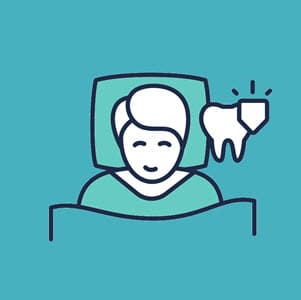Dentist With Sedation Near Me
Dentist With Sedation Near Me
Introduction to Dental Sedation
A dental appointment can sometimes be a nerve-wracking experience. Whether it’s regular dental treatments or more intensive surgical procedures, the mere thought of dental treatments can make some people uneasy. Enter the world of Sedation Dentistry Brisbane, a realm designed to prioritise your comfort and dental health.
Sedation dentistry ensures patients receive their necessary dental treatment in the most relaxed manner possible. One of the prime reasons people lean towards it is due to dental anxiety or dental phobia. Feelings of fear and anxiety about dental treatment may stem from past experiences, fear of pain, or even the unfamiliar sounds and sensations of dental tools.
By opting for dental sedation, anxious patients can overcome these fears and ensure that their dental health isn’t compromised due to apprehensions. Dr Roya Moulavi, a Dentist in Perth, says. In a nutshell, sedation dentistry can make your dental visits a breeze and keep your smile shining bright.
What is Sedation Dentistry?
Sedation dentistry refers to the use of medications to help patients relax during dental procedures. It’s sometimes called “sleep dentistry,” although that’s not entirely accurate as patients are usually awake except for those under general anesthesia. Here’s a breakdown of sedation dentistry and its types:
- Types of Sedation in Dentistry:
- Minimal Sedation: Patients are awake but relaxed.
- Moderate Sedation (formerly called “conscious sedation”): Patients may slur their words and not remember much of the procedure.
- Deep Sedation: Patients are on the edge of consciousness but can still be awakened.
- General Anesthesia: Patients are completely unconscious.
Specific methods include:
- Nitrous Oxide Sedation: Also known as “laughing gas,” nitrous oxide is inhaled through a mask placed over the nose. The gas helps patients relax, and its effects wear off quickly, allowing patients to drive themselves home after the procedure.
- Oral Sedation: Ranging from minimal to moderate, patients take a pill to induce a state of relaxation. The level of sedation depends on the dose administered.
- IV Sedation or Twilight Sedation: Sedative drugs are administered through a vein, allowing the sedation effect to kick in more quickly. This method allows dentists to adjust the level of sedation continually.
- General Anesthesia or Sleep Dentistry: Medications are provided to make the patient either almost or entirely unconscious during the procedure. Patients won’t wake up until the anesthesia wears off or is reversed with medication.
- Benefits of Sedation Dentistry:
- Alleviates Anxiety: Sedation dentistry is especially beneficial for individuals with dental anxiety or phobia. It helps create a relaxed, comfortable experience.
- Ease for the Dentist: When patients are relaxed, dentists can work more effectively and may be able to complete the procedures more quickly.
- Pain Management: Sedation can help alleviate pain and discomfort during the procedure.
- Memory Loss: Some levels of sedation may induce a level of memory loss for the duration of the procedure, which can be beneficial for those with dental anxieties or phobias.
- Beneficial for Certain Medical Conditions: Individuals with certain medical conditions like Parkinson’s disease or cerebral palsy may find sedation dentistry beneficial as it can help manage movements and responsiveness during dental procedures.
- Improved Overall Dental Care Experience:
- By alleviating fear and reducing discomfort, sedation dentistry encourages more people to prioritize dental care, which in turn can lead to better oral health and potentially fewer extensive procedures in the future.
Sedation dentistry can provide a pathway for individuals to receive necessary dental care in a comfortable, anxiety-reduced environment. It’s essential, however, that experienced and trained dentists and anaesthetists perform this form of dentistry to ensure the safety and well-being of the patient.
How to find a Sedation Dentists Near Me?
Finding a sedation dentist near you can be accomplished through various methods. Here’s a step-by-step guide on how you could go about this:
- Online Search:
- Use search engines like Google or Bing to look for sedation dentists in your vicinity. Key phrases such as “Dentist With Sedation Near Me”, “Sedation Dentistry Near Me”, or “Sleep Dentistry Brisbane” could yield useful results.
- Local Directories:
- Check local online directories or platforms like Yellow Pages, which often categorize businesses, including Brisbane dental practices. They might have a section or filter for sedation dentistry.
- Referrals:
- Ask friends, family, or even your primary care physician for referrals. They might know reputable sedation dentists in the area.
- Read Reviews:
- Once you have a list of potential clinics, read reviews on platforms like Google My Business or Yellow Pages to gauge the experiences of other patients, particularly focusing on the sedation methods offered and the overall care received.
- Contacting Clinics:
- Contact Brisbane Sleep Dental Clinics directly to inquire about their sedation options. It’s essential to ask about the types of sedation they offer, their experience with sedation dentistry, and any other concerns you might have.
- Consultation:
- If possible, schedule a consultation to meet with the dentist and discuss your needs personally. This will also give you a feel for the environment and the staff.
- Verify Credentials:
- Check the dentists’ credentials to ensure they can administer sedation and confirm that the clinic adheres to local and national safety standards.
- Insurance and Payment Plans:
- It’s also wise to inquire about the costs, insurance coverage, and payment plans available, as sedation dentistry can be more expensive.
- Professional Associations:
- Look for dentists who are members of professional associations such as the Australian Dental Association (ADA) or the American Society of Dentist Anesthesiologists (ASDA), as they are likely to adhere to high standards of care.
- Patient Comfort and Communication:
- Lastly, ensure that you feel comfortable with the dentist and that there is clear communication regarding the procedures, sedation methods, and any pre- or post-operative care required.
By taking a thorough approach, you can find a sedation dentist or paediatric dentist in Brisbane who meets your needs and ensures a comfortable and safe dental care experience.
What to Look for in a Sedation Dentistry Clinic?
Several factors should be considered when looking for a sedation dentistry clinic in Brisbane to ensure you receive safe and comfortable care. Here are some of the elements to look for:
- Experienced and Well-Trained Dentists and Staff:
- It’s essential that the dentists and staff have ample experience and training in sedation dentistry. They should have the necessary certifications and adhere to the latest safety protocols. Ask about their experience, training and if there have been any complications with previous sedation procedures.
- Clear Information on Sedation Practices and Costs:
- A reputable clinic should provide clear, comprehensive information about their sedation practices, including the types of sedation offered, the procedures for administering sedation, and the costs involved. You must understand the costs upfront and whether they accept insurance or offer payment plans.
- Convenience of Location:
- The clinic’s location should be convenient for you, especially since you might require someone to drive you home post-procedure due to the effects of sedation. A nearby clinic minimizes travel time and allows for easier follow-up visits.
- Comfortable Clinic Environment:
- The clinic environment should be comforting and calming to help alleviate any anxiety. Look for clean, well-maintained facilities with modern equipment. A friendly and compassionate staff can significantly enhance the overall patient experience.
- Transparent Communication:
- The clinic should be willing to answer all your questions and address your concerns about sedation dentistry. Good communication is key to understanding the process and feeling at ease.
- Positive Reviews and Testimonials:
- Look for positive reviews and testimonials from other patients. Their experiences can provide valuable insights into the quality of care provided by the clinic.
- Professional Affiliations:
- Check if the clinic or dentists are affiliated with professional organizations like the Australian Dental Association (ADA), which can be a testament to their commitment to maintaining high standards in sedation dentistry.
- Emergency Preparedness:
- Inquire about the clinic’s emergency procedures and whether they have the necessary equipment and trained staff to handle any emergencies that might arise during a procedure with sedation.
- Post-Procedure Care and Instructions:
- A good clinic should provide clear post-procedure care instructions and be available to answer any questions or address concerns after your treatment.
- Consultation Offer:
- See if the clinic offers a consultation where you can meet the dentist, discuss your needs, and get a feel for the clinic environment before committing to a procedure.
By paying attention to these factors, you can find a sedation dentistry clinic that meets your dental needs and ensures a comfortable and safe experience.
How can I Prepare myself for Sedation Dentistry?
to ensure your safety and the effectiveness of the sedation. Here’s a guide on what you can do to prepare:
- Consultation and Pre-Appointment Meeting:
- Schedule a consultation with the sedation dentist to discuss the procedure, the type of sedation to be used, and any concerns you may have.
- During this meeting, provide the dentist with a comprehensive medical history, including any medical conditions, allergies, and all medications you are currently taking (prescription, over-the-counter, and supplements).
- Get a Physical Check-up:
- Having a physical check-up with your primary care physician might be advisable to ensure you’re in good health for the procedure, especially if you have underlying medical conditions.
- Fasting:
- Your dentist or anaesthetist will give fasting instructions before the sedation. Typically, patients are advised to fast (no food or drink) for six hours before sedation.
- Arrange Transportation:
- Arrange for someone to drive you to and from the appointment, as you cannot drive after being sedated.
- Wear Comfortable Clothing:
- Wear loose, comfortable clothing to the appointment. It’s also advisable to wear short sleeves in case an IV line needs to be placed.
- Avoid Alcohol and Certain Medications:
- Abstain from alcohol and refrain from taking any medications that your dentist hasn’t approved at least 24 hours before the procedure.
- Prepare Your Home for Recovery:
- Set up a comfortable recovery area at home with necessary items like water, soft foods, and medications easily accessible.
- Follow the Dentist’s Instructions:
- Your dentist may provide additional instructions based on the type of sedation and the specific procedure. Follow these instructions meticulously.
- Stay Calm:
- Try to stay calm and relaxed before your appointment. Practice deep breathing or other relaxation techniques to ease any anxiety.
- Have a List of Questions:
- Prepare a list of any last-minute questions you may have for your dentist regarding the procedure or the sedation.
- Contact Information:
- Ensure the dentist has a list of emergency contact numbers, and likewise, ensure you have a contact number for the dentist or clinic for any post-procedure concerns.
- Inform the Dentist of Changes:
- If there have been any changes in your health or medications since your last meeting with the dentist, make sure to inform them before the procedure.
Following these steps and maintaining open communication with your sedation dentist can help ensure a smooth and safe sedation dentistry experience.
The Different Types of Sedation Dentistry Brisbane
Whether you’re undergoing a basic dental procedure or an elaborate surgical procedure, achieving a comfortable and painless dental treatment is a priority.
Let’s explore the various sedation techniques to ensure you get the care you need without the anxiety.
Laughing Gas (Mild/Minimal Sedation)
Commonly known as inhalation sedation, laughing gas is breathed in through a mask, allowing patients to relax without putting them to sleep. It’s a form of conscious sedation that keeps patients at ease during dental treatment, and its effects wear off quite rapidly post-procedure. Happy gas ensures patients can usually drive home post-treatment without any prolonged effects.
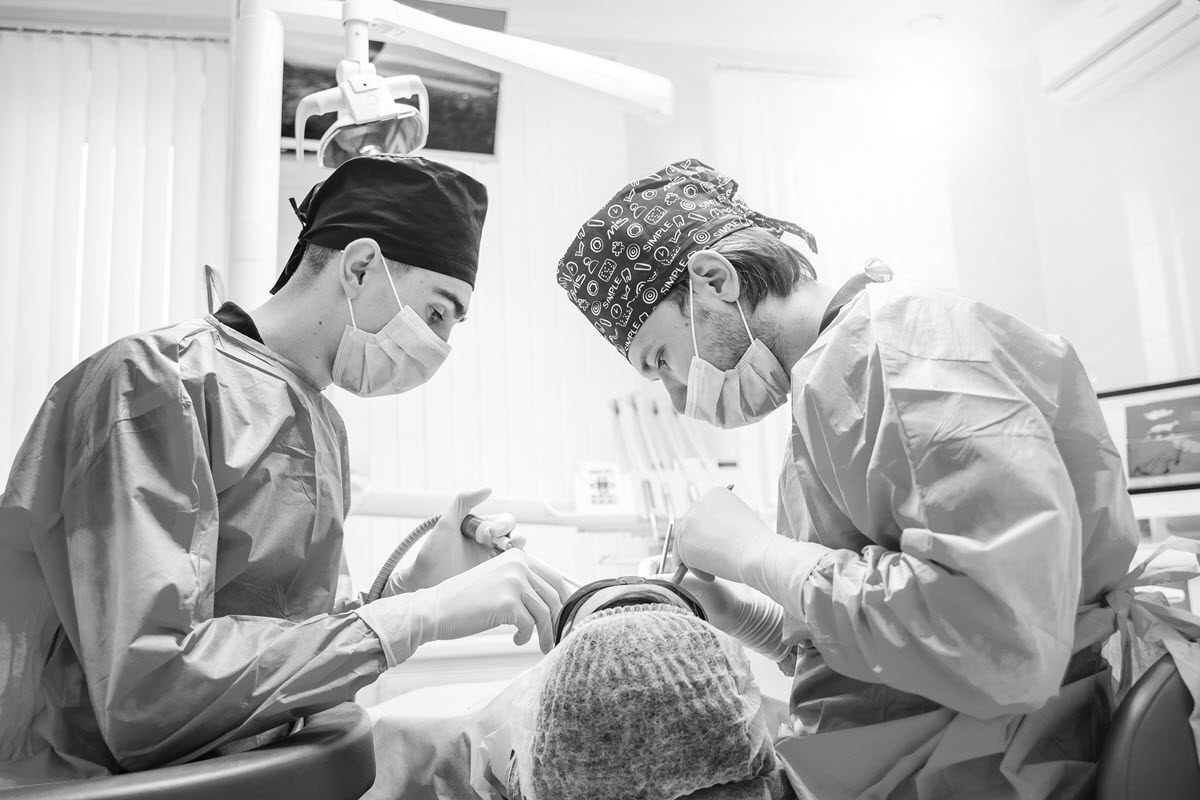
Oral Sedation (Moderate Sedation)
In this sedation method, patients take a pill, ensuring a deeper relaxation level than with laughing gas. While you’re still in a state of conscious sedation, it might make you drowsy enough to fall asleep, but a gentle shake should wake you up. Oral sedation is commonly used for patients with moderate dental phobia. According to Brisbane Paediatric Dentist, anaesthetists may provide children with oral sedation before general anaesthesia to make the process smoother and more comfortable for them.
IV Sedation (Twilight Sedation)
Utilising IV sedation or intravenous sedation means delivering sedatives and pain-relieving drugs straight into the bloodstream to create a calm, dream-like state atmosphere for the patient. After receiving IV sedation or twilight sedation, the patient will stay at ease but still responsive when required.
While under IV sedation, patients feel as though they’re in a light, almost dream-like state, distant from the proceedings of the dental procedure but not entirely asleep. This form of conscious sedation is especially advantageous for those with notable dental phobia or facing longer, more involved dental treatments.
General Anaesthesia (Sleep Dentistry)
Sleep dentistry refers to using a general anaesthetic during dental treatment to put patients into a deep and satisfying sleep. Sleep dentistry makes patients completely unconscious during the entire procedure.
Sleep dentistry often requires a specialist anaesthetist and may sometimes be conducted in a hospital setting. It provides optimal dental treatment outcomes for those requiring more intensive dental treatments or those with severe anxiety.
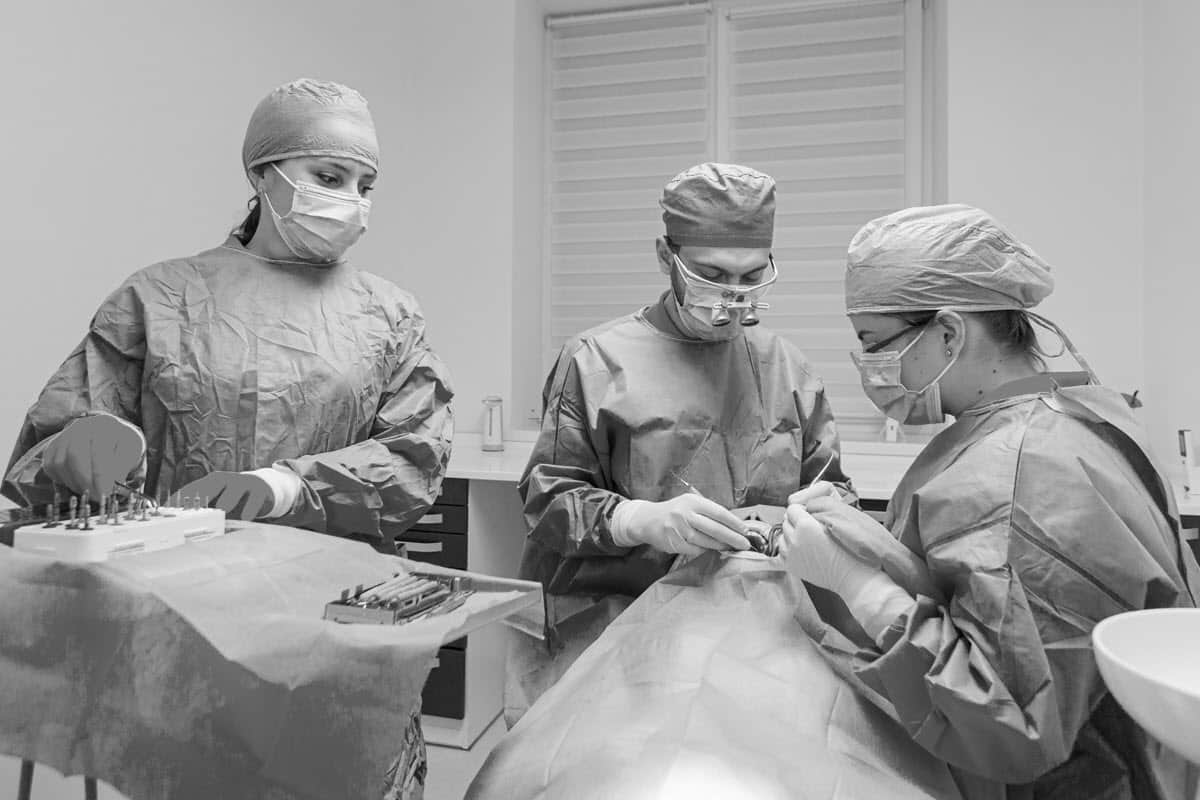
How Dentists Determine the Level of Dental Sedation
Dentists consider various factors to ensure that each patient receives the care best suited for their individual needs, ensuring that their journey to improved oral health is as smooth and comfortable as possible.
- One of the primary considerations for choosing sedation techniques is the patient’s anxiety level. People with severe dental anxiety or dental phobias might benefit from deeper levels of sedation, such as IV sedation (intravenous sedation) or even sleep dentistry methods. These deep, calming relaxation methods allow them to drift into a relaxed state, making the experience more pleasant and less daunting.
- The nature of the dental procedure is another significant factor. For instance, more involved surgical procedures or extensive treatment need a deeper sedation level to ensure the patient remains comfortable. Simpler treatments may only require a light sedation.
- Other individual factors, like a hypersensitive gag reflex or past traumatic dental experiences, can also influence the dental sedation choice. The goal is always pain-free dentistry, ensuring every patient has a positive experience regardless of their past encounters or inherent fears.
During a treatment planning session, patients and dentists discuss the available sedation methods, weighing the pros and cons based on the patient’s unique needs and the upcoming dental procedures.
Safety of Sedation Dentistry
One pressing concern for many patients pursuing dental sedation is the safety of sedation methods, whether it’s happy gas, IV sedation, or sleep dentistry (general anaesthetic) approach.
Firstly, the dental clinic community is bound by strict professional standards and guidelines. These protocols ensure that every sedation appointment meets the highest safety benchmarks. From a routine cleaning to a complex surgical procedure, adhering to these standards is crucial.
Before undergoing any form of sedation, a consultation appointment is set up. During this session, the dentist reviews the patient’s medical history, ensuring there are no potential conflicts or risks. Factors like previous allergic reactions, current medications, and overall health conditions are meticulously assessed.
Training is the backbone of safe sedation. Training is the backbone of safe sedation. Only qualified dentists or specialist anaesthetists, especially in the case of general anesthesia, are authorised to administer sedatives. Their extensive training and certifications ensure they’re well-equipped to handle the intricacies of sedation, be it in a dental clinic or a hospital setting for more extensive treatments.
Lastly, during dental treatment, vigilant monitoring is crucial. Patients’ vital signs, including heart rate and oxygen levels, are continuously tracked, ensuring they remain stable throughout the process. This constant surveillance guarantees that patients remain safe and comfortable during dental procedures.
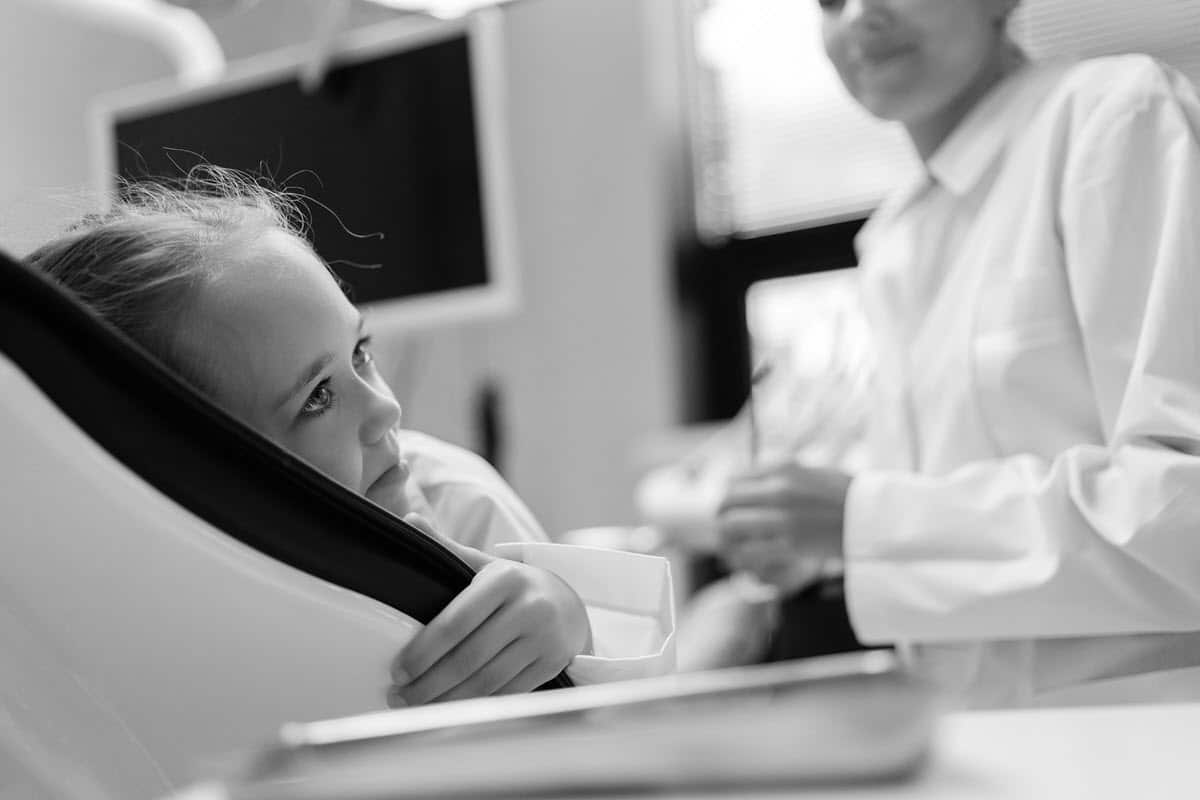
Potential Side Effects of Sedation
As with many medical interventions, sedation in dentistry, while offering significant benefits, has potential side effects. Understanding these can help patients make informed decisions and take necessary precautions.
- IV sedation and sleep dentistry: While these techniques provide deep relaxation, enabling those with dental fears to undergo necessary dental work, they might lead to grogginess post-procedure. Some individuals might experience mild nausea or dizziness. However, these side effects are typically temporary and dissipate within a few hours.
- Inhalation sedation: Often known as “laughing gas,” this sedation method can occasionally cause light-headedness, a feeling of heaviness in the limbs, or even bouts of laughter. These symptoms typically fade quickly once the gas supply stops.
Regardless of the sedation method, serious side effects are rare. The combination of sedative and pain relieving drugs is selected carefully to suit individual needs, minimizing potential risks. However, patients must communicate any allergies or past reactions before sedation appointments.
To ensure safety, here are some general precautions:
- Always have a trusted individual drive you home after dental appointments involving sedation.
- Rest and avoid making significant decisions for the rest of the day post-procedure.
- Report any lingering or severe side effects to your dentist immediately.
- After leaving the dental office, if side effects persist or there’s any cause for concern, it’s crucial to seek medical attention or contact the dental office for guidance.
While sedation can greatly improve the dental experience, especially for those with dental fears, it’s essential to be aware of potential side effects and take the recommended precautions for a smooth recovery.

Dental Procedures Typically Offered Under Sedation
The road to perfect dental health can sometimes lead to more complicated procedures, requiring something more comforting than a local anaesthetic. That’s where sedation dentistry comes into play, offering everything from calming relaxation to deep sleep dentistry to make the experience as comfortable as possible.
- Wisdom Teeth Removal: This is a classic example where IV sedation or general anaesthetic might be used, especially for anxious patients. The procedure involves taking out one or multiple wisdom teeth, and given its complexity, sedation ensures pain relief and eases discomfort.
- Root Canal Treatments: Notoriously dreaded, root canals are known to be painful. However, you can have a much smoother, virtually pain-free experience with conscious sedation. No more skipping this essential procedure for maintaining your oral health.
- Surgical Procedures: More intensive operations, often requiring extensive treatment, might call for sleep dentistry (general anaesthetic), especially for those with hypersensitive gag reflexes or high anxiety levels.
The Benefits of Opting for Sedation in Dental Treatments
The benefits of opting for sedation in these procedures are numerous:
Pain-Free Dentistry: Probably the most significant advantage, sedation allows for comfortable, pain-free procedures, taking the dread out of necessary dental work.
No Need for Multiple Visits: Sedation enables Brisbane dentists or Brisbane Paediatric dentists to perform complex procedures in fewer sittings, making it easier for you to maintain your dental care without disrupting your schedule with multiple visits.
Reduced Anxiety: Knowing that sedation options are available can provide much-needed peace of mind for anxious patients, allowing them to focus on achieving the best dental health rather than worrying about potential medical emergencies or discomfort.
Post-procedure, the type of sedation used will often dictate the recovery time and care needed. However, a common thread is to have someone drive you home and keep an eye out for any unusual symptoms that might require prompt attention.
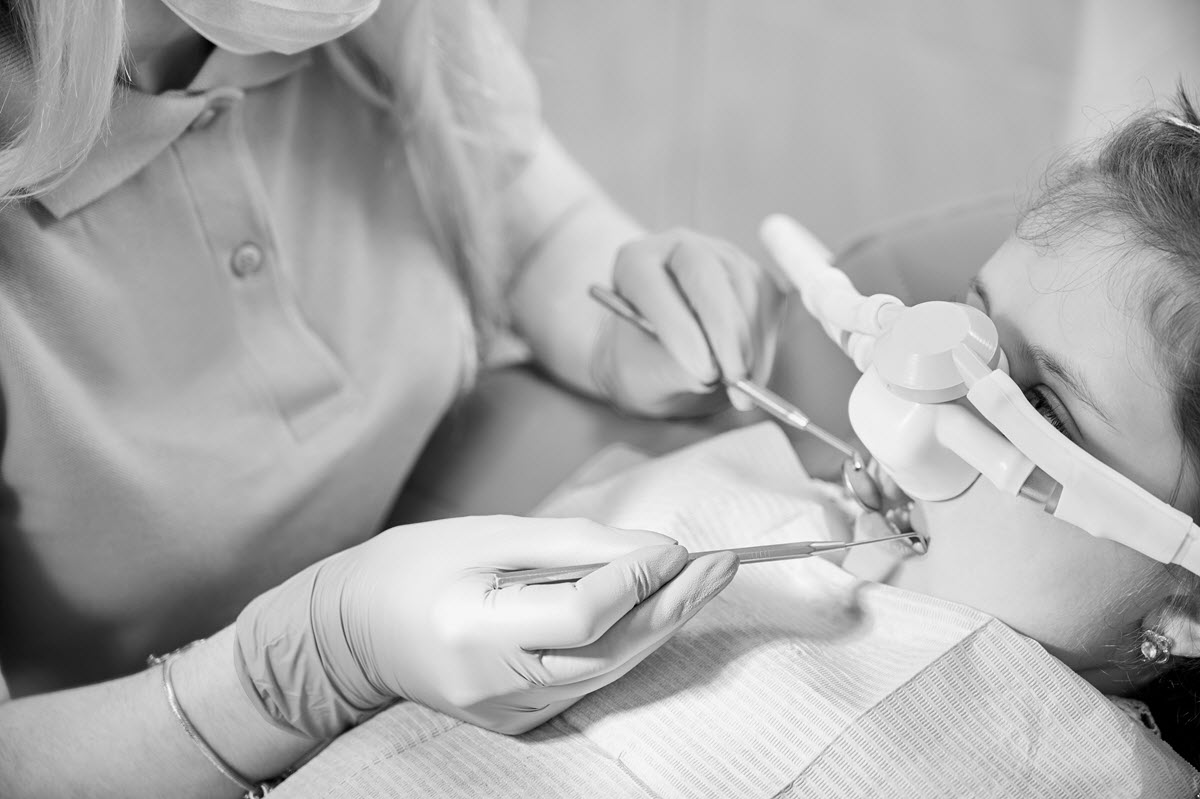
Sedation Dentistry for Children
One of the questions that frequently arises is whether sedation, like sleep dentistry or happy gas, is safe for kids. The good news is that when administered by a kids dentist at a qualified dental clinic, sedation is generally safe and can make a child’s dental visit much more comfortable.
Common procedures like tooth extractions or fillings can sometimes overwhelm little ones. In such cases, happy gas can provide just the right level of calm without the heaviness of deeper sedation. Sleep dentistry may be advised for more complex procedures, always considering the child’s age, weight, and overall health.
Things to Consider Before Opting for Sedation Dentistry
Before choosing sedation:
- Review your health and medications with your dentist or paediatric dentist in Brisbane.
- Ensure you understand the process and what’s expected during and after the procedure.
- Follow any pre-procedure guidelines your dentist provides to ensure a smooth experience.
I am text block. Click edit button to change this text. Lorem ipsum dolor sit amet, consectetur adipiscing elit. Ut elit tellus, luctus nec ullamcorper mattis, pulvinar dapibus leo.
Conclusion
In conclusion, sedation dentistry can comfort individuals who might otherwise shy away from essential dental care due to anxiety or fear. Mitigating discomfort and anxiety transforms the dental experience into a more manageable and less stressful endeavour. The various sedation options available cater to a wide range of needs, ensuring that each patient can find a method that suits them.
If you’re in Brisbane and have been postponing dental appointments due to anxiety, now might be the perfect time to take a step towards a stress-free dental experience. By seeking out a reputable sedation dentistry clinic near you, you’re prioritising your oral health and allowing yourself to receive dental care in a relaxed and comfortable setting. Remember, a positive dental experience is a gateway to maintaining long-term oral health, and sedation dentistry could be the key to unlocking that pathway for you.
Pure Dentistry Brisbane: Our Approach to Sedation Dentistry
At our dental practice, your comfort is our top priority. With a team of highly trained dental specialists, we offer a range of sedation options, including IV sedation (twilight sedation), sleep dentistry, and happy gas, to make your dental appointments as relaxed as possible. Whether it’s wisdom teeth removal, a root canal, or dental implants, we tailor our approach to meet your unique needs.
Looking for a comfortable and stress-free dental experience? Schedule a consultation with our friendly dentists to explore how we can improve your oral health through comfortable and effective regular dental treatment options.
Contact us now at 07 3343 4869 to book your appointment and discover the Pure Dentistry difference. See Emergency Dentist in Brisbane for emergency dental appointments.

